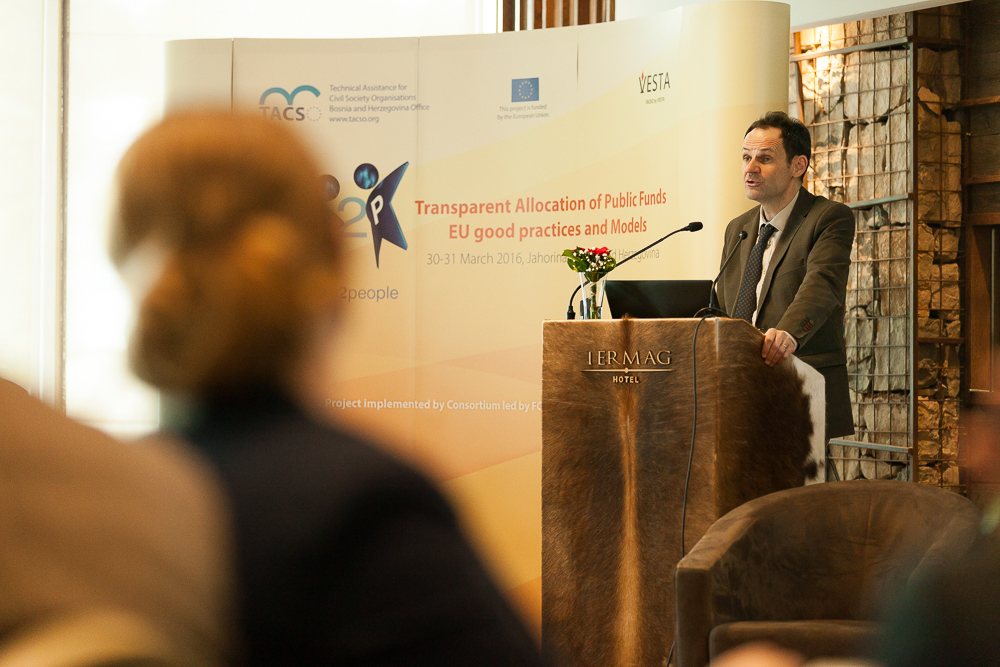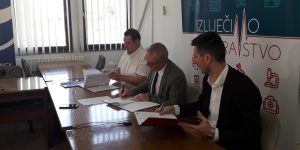The civil society is one of the cornerstones of democracy.
Article 10 of the Treaty of Lisbon states that EU shall be based on the representative democracy (role of political parties) and participative democracy (role of civil society), while Article 11 of the Treaty obliges the EU institutions to maintain a dialogue with the citizens and civil society.
The citizens, both individually and via Civil Society Organisations, should be in a position not only to participate in policy making and legislative processes but also to monitor closely the proper implementation of existing rules and regulations.
They must be able to do that through direct participation, not as a distant voice far from the action. Of course, with participation comes responsibility. For their part, Civil Society Organisations have to show that they are committed and therefore responsible in their intent. Indeed, their credibility comes from their ability to reflect the different opinions of different segments of the population.
In a participative democracy, the role of civil society is of vital importance in providing an alternative perspective and – on occasion – in filling a void left by the elected authorities. The basic values of EU Member States include a government’s ability to take into consideration and accept critical and informed views from civil society.
In order to enable a participative democracy the governments, which provide funding to civil society organisations, should make the public funding as transparent as possible. For example, in Bosnia and Herzegovina about 60 million EUR are allocated annually to organisations that are considered non-governmental according to their legal registration. But only a small portion of these funds are allocated through a transparent process. The EU Delegation decided almost 8 years ago to address the issue of lack of transparency in public funding in BiH. As a result, we have developed jointly with UNDP a project called Reinforcement of Local Democracy or “LOD”. This project is about to complete its 4th phase and we invested so far about 7 million EUR.
The main objective of LOD Project is to strengthen and deepen the existing relationship between local governments and CSOs in order to maximize the effectiveness and sustainability of their crucial services to citizens in local communities and thus contribute to democratic stabilization, conciliation and further development of Bosnia and Herzegovina.
This project also developed a so-called LOD methodology, which application ensures transparency in allocation of funds to CSOs. One of the main steps and challenges towards achieving this goal is establishing a transparent and inclusive system for providing public funds to civil society organizations. The LOD methodology is a tool which ensures that the public funds are managed, disbursed and implemented transparently and consistently and that they effectively respond to the actual local needs as identified in the local development plans and strategies.
The LOD approach, in view of its success, has become an example of best practice and the EU is planning to replicate the model implemented in BiH on a regional scale. Tomorrow morning you will have the opportunity to hear more about this very interesting project by Mr Samir Omerefendic, UNDP Programme Manager.
However, the final objective of all our efforts is to create more citizens-oriented and efficient local public administrations, which is essential for moving towards EU standards and the accession to the European Union. This is a complex process that requires committed local authorities and involvement of all stakeholders, notably from the civil society. The mutual benefit of a strong partnership and dialog between local self-government units and civil society organizations is evident, as it contributes to the democratisation of accession countries, which is one of the fundamental elements for accession to the European Union.
I hope that this conference will further boost the process of improvement of funding transparency in all countries of the region by giving the opportunity to all participants to discuss and exchange their experiences, lessons learned and opinions on this important subject. The European Union will always be there to support these positive processes.
Thank you for your attention.
Massimo Mina, the Head of Operations Section for Social Development, Civil Society and Cross-Border Cooperation at the EU Delegation to BiH, spoke at the opening of the regional conference “Transparent allocation of public funds: EU good practices and models” held on Jahorina, BiH, on 30 March 2016.




